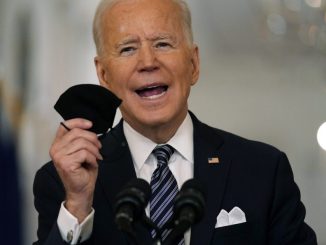

Commentary
Over the past few weeks, legislatures, school boards, and parents have risen to challenge critical race theory (CRT) as a divisive ideology teaching our children to become racists. Their objections have brought this once-obscure academic theory to the front pages.
They’ve also raised some burning questions: What is CRT? What makes it so objectionable? How can this central pillar of “antiracist” training be racist?
The answer begins—as do so many these days—with the progressive penchant for deconstruction, or redefining words. “Antiracist” training is racist because progressives have redefined “racism.”
CRT scholars have been clear and consistent. The “antiracism” they’re preaching is not the “antiracism” of Martin Luther King Jr. Nor is it opposition to the discriminatory treatment most Americans oppose when speaking against racism. CRT contends that the “systems” defining modern American life are irredeemably racist. It calls for a revolutionary upheaval, laying waste to every existing governmental, legal, economic, cultural, social, communal, and familial institution.
CRT’s “antiracism” explicitly requires compensatory discrimination against “white people” rather than equal treatment for all. To further this goal, K-12 CRT programs emphasize and heighten racial identity, segregate students by racial group, discriminate in their treatment of these groups, and teach that racial tension is unavoidable.
CRT also embodies an absolute and total rejection of American exceptionalism. CRT sees the entire American experiment extolling individual liberty as white supremacism with good PR. One consequence of that rejection is that CRT has become a shorthand for the entire constellation of anti-American neo-Marxist theories dominating today’s left. Whereas Marx cast history as a struggle among economic classes, contemporary Marxists believe that struggles among races and genders are at least as important.
Though that blurring may give CRT advocates a talking point, it’s hardly one of consequence. Just as Marx missed the incredible adaptivity of capitalism and the benefits it confers upon poor workers, CRT’s loathing of America blinds it to the adaptive and evolutionary role American exceptionalism has played in combating discrimination.
There was nothing exceptional about the first African slave ships to arrive in the New World in the early 17th century. Slavery had been around throughout recorded history. Every known culture, everywhere in the world, had embraced inequality. Captives taken from conquered cities, warring tribes, or disfavored faiths had long been sold into bondage. People were born into a station in life and expected to behave accordingly. Few even bothered to question such “structural inequalities.” No human society had ever embraced the radical idea that “all men are created equal,” much less tried to put it into practice.
Until, that is, July 4, 1776, when a slaveholding plantation owner named Thomas Jefferson declared it the foundational creed of a new nation. That foundation was truly exceptional. It sent the young America on a collision course with all of past history. One after another, the time-honored institutions of inequality fell before this revolutionary American ethos.
Four score and seven years later, Abraham Lincoln reiterated Jefferson’s proposition as part of the fight to end slavery. A century after that, MLK galvanized the nation to end Jim Crow. Over the next few decades, the United States not only dismantled all legal and most social barriers to black advancement, it also adopted numerous set asides and preferences to promote the full integration of its black citizens into the American dream. In 2009, America inaugurated its first black president.
Those steps were all exceptional and proper sources of American pride. Yet viewed through the lens of CRT, they merely masked increasingly subtle forms of anti-black racism and white supremacism.
CRT’s ability to reach such a conclusion reveals just what type of “theory” it is. CRT relies upon the reasoning that’s the hallmark of conspiracy-theoretic thinking: Evidence (like slavery) tending to support the argument that America is racist is taken on face value; evidence tending to negate it (like the elevation of MLK into the forefront of America’s heroes) is inverted into support. To critical race theorists, CRT is self-evidently true. All relevant evidence, no matter what it appears to say, is taken as confirmation.
CRT is a toxic, racist, anti-American conspiracy theory. At its heart is a denial of the American exceptionalism that has done more than any other ideology to combat inequality and discrimination. CRT has no place in our schools. America’s children should learn that their nation introduced new notions of equality to the world—and dedicated its history to broadening their applicability. They should learn to embrace America’s foundational ideal and take pride in the way it has worked its way throughout our history.
True advocates for diversity and inclusion should love no country on earth more than the United States. Our exceptional nation has taught the world that broad equality under the law provides a far better path to stability and prosperity than does the perpetual struggle among divided groups. That’s why true opponents of racism oppose CRT—in our schools and elsewhere.
Bruce Abramson, Ph.D. J.D., is a principal at B2 Strategic, senior fellow and director at ACEK Fund and the author of “American Restoration: Winning America’s Second Civil War.”
Views expressed in this article are the opinions of the author and do not necessarily reflect the views of The Epoch Times.





Be the first to comment